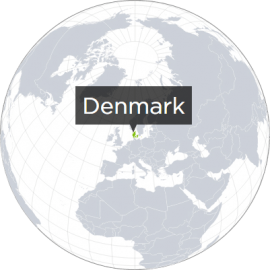However, we have seen a global decline in one element: Personal and Family Relationships. Over the past decade, the percentage of people reporting getting help from their families declined in over half of countries. For example, within Western Europe, 13 of the region’s 20 countries have experienced a weakening of Personal and Family Relationships over the past decade, while Canada has also seen a notable deterioration
Social Capital Spotlight: The crucial role of families in our collective well being

We have seen remarkable progress in the development of Social Capital over the past decade. Though Asia-Pacific has experienced the greatest improvements over the past ten years, Eastern Europe has taken some of the most impressive recent steps forward. The region followed Asia-Pacific as the most improved since 2011, while it has recorded the greatest improvement in 2021. These remarkable improvements in the development of Social Capital have been driven by strengthening Civil and Social Participation, Social Networks, as well as in Interpersonal and Institutional Trust.
We have seen remarkable progress in the development of Social Capital over the past decade. Though Asia-Pacific has experienced the greatest improvements over the past ten years, Eastern Europe has taken some of the most impressive recent steps forward. The region followed Asia-Pacific as the most improved since 2011, while it has recorded the greatest improvement in 2021. These remarkable improvements in the development of Social Capital have been driven by strengthening Civil and Social Participation, Social Networks, as well as in Interpersonal and Institutional Trust.
Weakening family bonds present a significant threat to delivering prosperity. Families make an incalculable contribution to wellbeing, acting as perhaps the most important of all informal social institutions, providing members with an unparalleled level of developmental, emotional, and financial support. They represent the foundational organisational structures for society in every nation of the world, providing the intimate social environment in which children can be taught, guided, and nurtured.
Studies suggest that strong families play an important role in children’s overall attainment, as well as their wellbeing. Parents have a significant influence on the achievement of their children through supporting their learning in the home. For example, parental involvement in their child’s reading is strongly linked to children’s academic performance and is a key determinant of academic success alongside other family background variables, such as social class, family size, and level of parental education
It should therefore come as little surprise that the impact of family breakdown is considerable, especially for children. For example, those raised in lone parent households in the UK have been found to be twice as likely to fail at school, twice as likely to get into trouble with the police, and twice as likely to become homeless. They are also more likely than their peers to have drug and alcohol issues, experience teenage pregnancy, suffer from mental health problems, or be in debt.
Weakening family bonds are symptomatic of the sharp increase in divorce rates seen in developed nations in recent decades. Across OECD nations, divorce rates were found to be higher today than in 1970 in all but four nations, while in some, including Belgium, Greece, Israel, Korea, Luxembourg, Norway, the Netherlands, and Portugal, rates more than doubled over the period. Similarly, in the UK, recent statistics from the Office of National Statistics show that divorce rates are at their highest on record, having risen by more than 18% since 2018 alone.
Recent research highlights some major regional differences in the strength of family relationships across the UK. It found that family relationships are weakest in Wales, post-industrial urban areas (such as Blackpool, Sunderland, and Plymouth), and Lancashire. For example, in Lancashire 26% of families are lone parent families, whereas in the commuter belt around London it is just 18.
Examining what more we can do to support families and to help prevent family breakdown is not just of importance to the parents and children who risk suffering the most immediate consequences. It is something that evidence suggests will help strengthen societies in nations right around the world.
Did
you know?
The economic cost of family breakdown in the UK is estimated at £51 billion each year, equating to around half of total government spending on education. Only around 66% of UK families are intact by the time children reach the age of 15, compared with 95% in Finland





